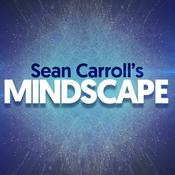It's possible to look at the course of history over the past few centuries and discern a movement toward increasing democracy, freedom, and individual rights -- "liberalism," in the political-philosophy sense of the term. But such movement isn't inevitable or irreversible, and in very recent times there have been both intellectual arguments explicitly pushing back against the liberal consensus, and political movements that are more openly nativist and authoritarian. I talk with Adam Gurri, the editor-in-chief of Liberal Currents, a web site that "publishes writers of diverse perspectives who share an unflinching commitment to freedom, pluralism, and democracy, in opposition to authoritarianism at home and around the world."
Go to https://surfshark.com/mindscape or use code MINDSCAPE at checkout to get 4 extra months of Surfshark VPN!
Blog post with transcript: https://www.preposterousuniverse.com/podcast/2026/02/16/344-adam-gurri-on-liberal-democracy-and-how-to-fight-for-it/
Support Mindscape on Patreon.
Adam Gurri received an M.A. in Economics from George Mason University. He is the co-founder and Editor-in-Chief of Liberal Currents.
Web site
Liberal Currents
Bluesky



